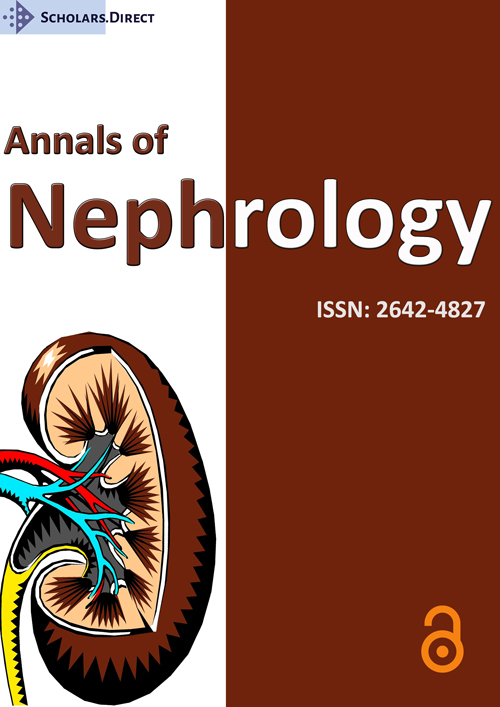Medullary Thyroid Carcinoma Presenting with Severe Hypokalemia
Abstract
Several case reports have been reported of ectopic ACTH production secondary to MTC. Approximately 0.6% of cases of MTC have ectopic production of ACTH. The objective of this case is to bring attention to the association between ectopic ACTH or CRH causing symptoms in the setting of medullary thyroid carcinoma.
This case is about a 38-year-old male, with recently diagnosed hypertension, who presented to the hospital due to left upper extremity swelling and significant hypokalemia who was found to have Cushing’s syndrome and later metastatic medullary thyroid carcinoma. He was started on metyrapone with an improvement in cortisol levels.
The patient was then started on Selpercatinib, with a good response. However, he developed a recurrence of cancer.
The objective of this case is to bring attention to the association between ectopic ACTH or CRH causing symptoms in the setting of medullary thyroid carcinoma.
Keywords
Ectopic ACTH secretion, Cushing’s syndrome, Medullary thyroid carcinoma
Introduction
Medullary thyroid carcinoma (MTC) accounts for about 1-2% of all thyroid malignancies [1].
70% of most medullary thyroid carcinomas are sporadic in nature. The typical age at initial presentation ranges between 41 and 55 years. (Sporadic Medullary Thyroid Carcinoma: Towards a Precision Medicine, 2022).
Several case reports have been reported of ectopic ACTH production secondary to MTC. Approximately 0.6% of cases of MTC have ectopic production of ACTH [2].
Aside from signs and symptoms of Cushing's disease, other clinical features included generalized weakness, exertional dyspnea, distal paresthesia, galactorrhea, back or hip pain, and pathological fractures with metastases to the neck, mediastinal lymph node, liver, bones, and adrenals.
The objective of this case is to bring attention to the association between ectopic ACTH or CRH causing symptoms in the setting of medullary thyroid carcinoma.
Case
Thirty-eight-year-old male, with a past medical history of recently diagnosed hypertension treated with lisinopril, presented to the hospital due to left upper extremity swelling, redness, and pain. On arrival, labs were significant for hypokalemia, 2.6 mmol/L, and hyperglycemia at 166 mg/dL with normal kidney function. There was no reported history of vomiting, diarrhea, or decreased PO intake.
He was diagnosed with acute cellulitis and started on appropriate antibiotics. At the same time, aggressive replacement of potassium resulted in only minimal improvement and recurrence of severe hypokalemia prompting further workup. Urine electrolyte panel results were suggestive of renal potassium wasting defect. The aldosterone level was 5 ng/dL (normal) and the direct renin level was 9.4 pg/ml (normal). The random cortisol level was 69.2 microgram/dl (increased). Dexamethasone suppression test was done which showed elevated cortisol levels confirming ACTH production. Brain MRI revealed no pituitary lesions.
Due to a lack of improvement in the left arm swelling, the patient underwent a CT scan with IV contrast to look for possible obstruction which showed a mass in the thyroid region with abdominal lymph nodes, and multiple hepatic lesions. A liver biopsy was done which was consistent with medullary thyroid carcinoma. Hematology oncology service was consulted. The patient was started on metyrapone with an improvement in cortisol levels.
The patient was then started on Selpercatinib (Retevmo) 160 mg twice per day, with regular follow-ups with heme/onc, nephrology, and endocrinology. The patient’s potassium and glucose were well controlled. However, he developed a recurrence of cancer [3-5].
Discussion
The diagnosis of ectopic ACTH production secondary to MTC is based on the presence of hypercortisolism not suppressed by high cortisol, absence of pituitary adenoma, and Cushing syndrome symptoms.
MTC can spread to lymph nodes, and the lungs, liver, and brain via blood.
Treatment for ACTH production includes adrenolytic agents or suppression of steroidogenesis. In extreme cases, bilateral adrenalectomy may be needed.
Tyrosine kinase inhibitors including selpercatinib, sorafenib, vandetanib, and cabozantinib are used for chemotherapy for MTC. Immunotherapy was found to significantly decrease cortisol and ACTH levels.
Due to the high resistance rates of MTC to tyrosine kinase inhibitors, screening for recurrence is essential.
Upon reviewing similar cases, other substances associated with MTC include the production of corticotrophin-releasing factor (CRF), serotonin, somatostatin, and substance P along with prolactin production-stimulating activity occurring typically in the presence of distant metastases.
Ectopic ACTH must be considered in the differential diagnosis, especially in the setting of thyroid neoplasm such as MTC, while investigating for severe refractory hypokalemia.
Acknowledgements
Declaration of conflicting interests
The author(s) declared no potential conflicts of interest with respect to the research, authorship, and/or publication of this article.
Funding
The author(s) received no financial support for the research, authorship, and/or publication of this article.
References
- Matheny LN, Wilson JR, Baum HB (2016) Ectopic ACTH production leading to diagnosis of underlying medullary thyroid carcinoma. J Investig Med High Impact Case Rep 4: 2324709616643989.
- Choi HS, Kim MJ, Moon CH, et al. (2014) Medullary thyroid carcinoma with ectopic adrenocorticotropic hormone syndrome. Endocrinol Metab (Seoul) 29: 96-100.
- Ferreira M, Leal CTS, Ferreira LV, et al. (2019) Atypical presentation of a medullary thyroid carcinoma producing acth and serotonin. Case Rep Oncol 12: 742-748.
- Birkenhäger JC, Upton GV, Seldenrath HJ, et al. (1976) Medullary thyroid carcinoma: Ectopic production of peptides with ACTH-like, corticotrophin releasing factor-like and prolactin production-stimulating activities. Acta Endocrinol (Copenh) 83: 280-292.
- Mäkinen VN, Horskær Madsen S, Ji Riis-Vestergaard M, et al. (2023) Ectopic Cushing's syndrome from a corticotropin-releasing hormone-secreting medullary thyroid carcinoma: A rare pitfall of inferior petrosal sinus sampling. Endocrinol Diabetes Metab Case Rep 2023: 23-0057.
Corresponding Author
Areej Zaheer, MD, Department of Internal Medicine, Henry Ford Macomb Hospital, 15855 19 Mile Rd, Clinton Twp, MI 48038, USA.
Copyright
© 2024 Zaheer A, et al. This is an open-access article distributed under the terms of the Creative Commons Attribution License, which permits unrestricted use, distribution, and reproduction in any medium, provided the original author and source are credited.


